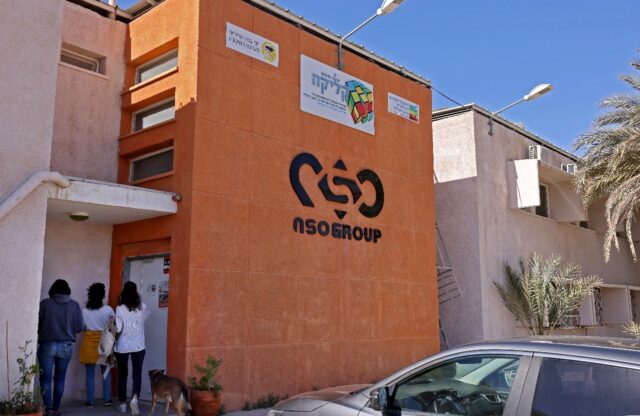Israel’s NSO Group, which makes Pegasus spyware that is controversial worldwide, said Sunday its CEO was leaving his post as part of a reorganisation.
The indebted, privately owned company also said it would focus sales on countries belonging to the NATO alliance.
In July last year, a multinational journalistic investigation revealed that Pegasus spyware had been sold by NSO to governments around the world and used against human rights activists, politicians, reporters and others.
“NSO Group announced today the company will reorganise and CEO Shalev Hulio will step down,” a company spokesperson said in a statement.
The firm’s chief operating officer Yaron Shohat will now “take the lead” and manage the reorganisation process, the spokesperson added.
The reorganisation “will examine all aspects of its business, including streamlining its operations to ensure NSO remains one of the world’s leading high-tech cyber intelligence companies, focusing on NATO-member countries,” a reference to the 30-member North Atlantic Treaty Organization political and military alliance.
Pegasus spyware is used to infiltrate mobile phones and extract data or activate cameras or microphones.
NSO Group says the software is only sold to government agencies to target criminals and terrorists, and sales require Israeli government approval.
The software has helped security forces in many countries thwart crime and stop attacks, the company says. It has also stressed that its foreign sales are licensed by Israel’s defence ministry and that it does not control how its customers use Pegasus.
Court documents
The company was already mired in debt before the spying scandal broke and led the United States to ban NSO.
Earlier this year, AFP reviewed hundreds of pages of court documents from a dispute involving NSO, its creditors and the Berkeley Research Group (BRG), majority shareholders of NSO’s parent company.
The documents suggested creditors sought to push NSO to continue selling Pegasus to “elevated risk” countries with questionable human rights records, in order to maintain revenues.
But Berkeley Research demanded a halt to suspect sales without more internal reviews, citing an “absolute need for (NSO) to address the underlying issues” that saw it banned in the US.
Hulio, a co-founder of the company, said in the NSO statement that the firm “is reorganising to prepare for its next phase of growth.”
He praised Shohat as “the right choice” and said NSO’s technologies “continue to help save lives worldwide”.
In the same statement, Shohat said: “NSO will ensure that the company’s groundbreaking technologies are used for rightful and worthy purposes.”
Revelations about the use of Pegasus spyware continue to emerge.
In late July, the European Commission, the EU executive’s arm in Brussels, said it had found indications that phones of some of its top officials had been compromised by the spyware, according to a letter seen by AFP.
Also last month, an international digital rights group report said dozens of Thai democracy activists had been targeted by Pegasus during widespread anti-government protests.

COMMENTS
Please let us know if you're having issues with commenting.